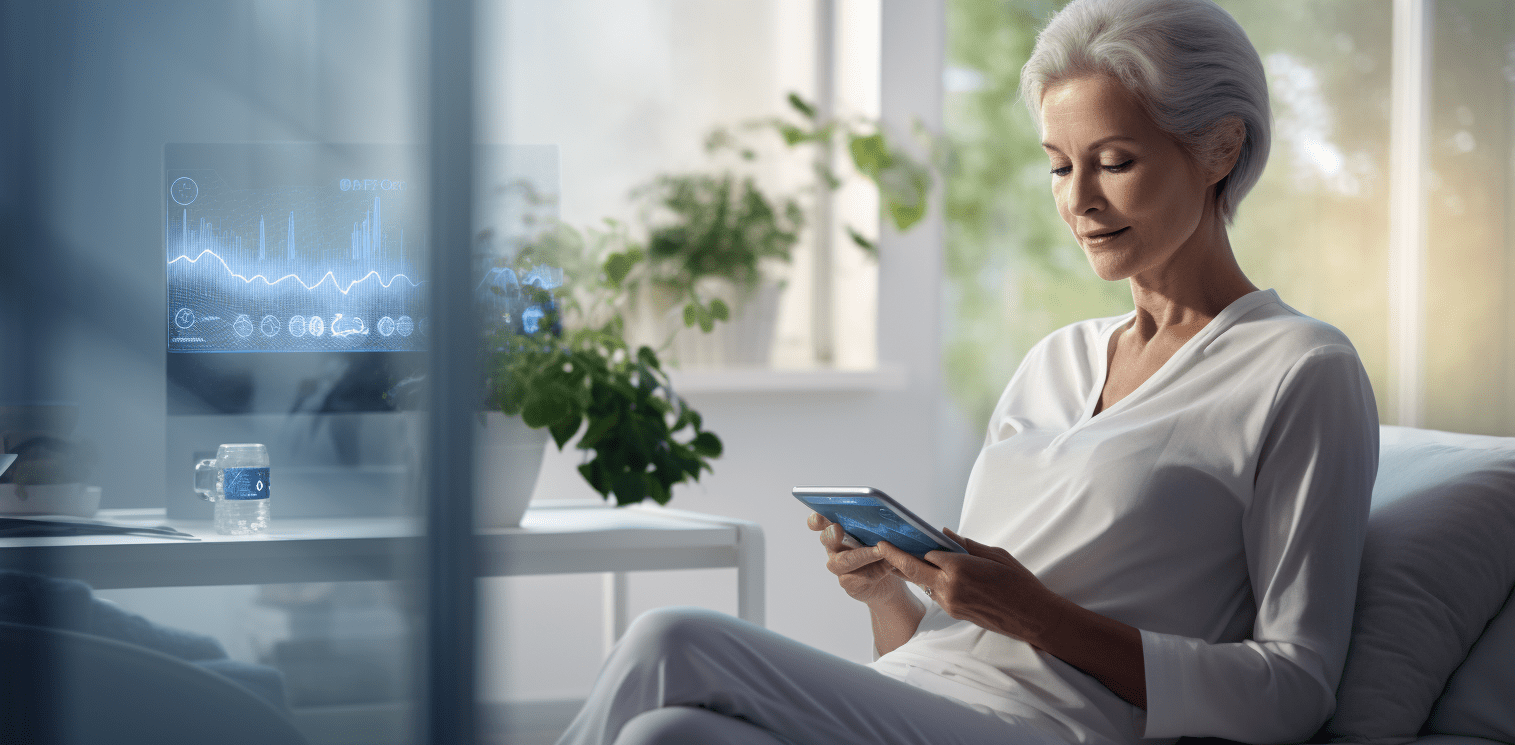The benefits of using remote patient monitoring technologies in mental health.

Remote patient monitoring technologies have revolutionised many spheres of medicine, including mental health. Thanks to these innovations, healthcare professionals can support patients suffering from mental disorders, improving the effectiveness of therapies and allowing for more efficient management of mental health. This article will explore the benefits of using remote patient monitoring technologies in the context of mental health.
1. Improved accessibility:
One of the main advantages of remote monitoring technologies is the ability to receive a patient’s biosignals remotely and provide mental health and medical assistance empowered by real-time data. This is particularly important for patients in rural or remote areas, as they can access specialist services without travelling. Additionally, people with disabilities or physical limitations find it easier to attend therapy sessions when they can do so from home. Improved accessibility promotes greater adherence to therapies and reduces the likelihood of treatment dropout.
2. Increased Patient Involvement:
Remote monitoring technologies allow patients to monitor their symptoms and vital signs in a familiar environment. This promotes more significant involvement in the care process and greater awareness of one’s mental condition. Patients can track their progress, set goals and receive feedback directly from their healthcare professional through suitable applications or monitoring devices. This active involvement can improve the effectiveness of therapies.
3. Continuous monitoring:
Remote monitoring technologies allow constant surveillance of patients with mental health disorders. This type of continuous monitoring enables healthcare professionals to detect significant changes in health status in real-time, immediately alerting the medical team in case of an emergency or deterioration of the condition. This facilitates a timely response and can help prevent crises.
4. Reduction of treatment costs and times:
Remote monitoring technologies can reduce costs and treatment times for patients suffering from mental disorders. By receiving specialist care remotely, patients can avoid costly travel and hospitalisations. Furthermore, continuous monitoring and early detection of problems can prevent unnecessary hospitalisations or follow-up visits, thus reducing the financial burden on patients and the healthcare system.
In resume, remote patient monitoring technologies are changing the mental health landscape, offering several benefits. From improved accessibility to increased patient engagement and continuous monitoring to reduced treatment costs and time, these innovations enable healthcare providers to deliver more efficient and personalised care. It is essential to continue developing and adopting these technologies to improve the population’s mental health and promote well-being.
